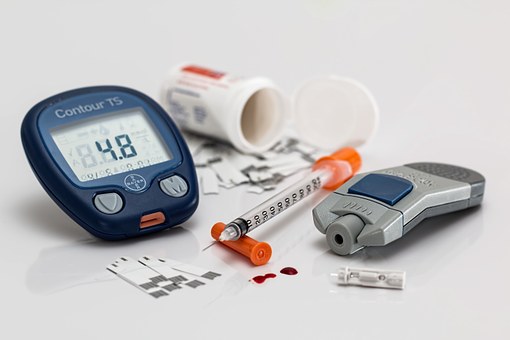Why We Need To Take Diabetes Seriously
“The overall risk of dying among people with diabetes is at least double, compared to their peers who don’t have diabetes”
Despite being a high risk nation, India lacks awareness and acceptance of diabetes as a major health risk. Unlike other lifestyle diseases such as cardiovascular disease, hypertension, obesity and even cancer, diabetes is not talked about or considered a ‘high risk’ disease by most people. Here, it is important to underline that the overall risk of dying among people with diabetes is at least double, compared to their peers who don’t have diabetes.
India is home to the world’s second largest population of diabetics after China with over sixty-seven million Indians already with diabetes and an additional seventy seven million pre-diabetic. The already staggering number is further projected to rise by 2035 and India will then see the world’s biggest increase in diabetes during that time. If these figures do not scare you enough, it is probably due to lack of integrated awareness regarding the complications and other health disorders linked to diabetes.
Understanding Diabetes
As stated above, the reason why diabetes is not considered a serious health hazard by a large section of the population is because most people believe that unlike cardiovascular disease, or cancer, nobody dies of diabetes directly. What most people are not aware of is, that diabetes creates such health complications that a lot of people die of these complications.
If you are suffering from diabetes, it is linked to several other complications like hyperglycaemia, hypertension and dyslipidemia. All these complications could result in serious health troubles like heart disease. vision or kidney failure and also possible damage to the nerves.
Why 360 Degrees Care Is Crucial
Diabetes is a disorder that requires religious monitoring and management. For people who are aware of the importance of regular monitoring and timely intervention, the problem is of access to the right care at the right place. A lot of people with diabetes do not get their blood sugar and blood pressure levels monitored regularly, failing to gauge the seriousness of their condition; some take recourse to alternate treatments and others do not make adequate lifestyle modifications requiring control on diet and weight.
Also, many believe they aren’t at risk for diabetes because of the notion that it only affects the elderly or obese. In reality, women, young adults and children too are at greater risk than ever before, due to changing diets and sedentary lifestyles. Pregnant women are at particular risk for gestational diabetes that also affects newborns, an increasing problem in India. Self monitoring is yet to become a norm,
The concept of 360 degree care for diabetes includes a 24×7 system to monitor critical indicators, report them to physicians immediately and get an urgent feedback from them. Since diabetes management includes an entire gamut of lifestyle changing measures, a comprehensive management system shall also include daily diet and exercise measures that together keep the individual’s critical indicators in check.
In most cases in India. patients are required to go to different places at different times to have their readings and blood taken, These readings then have to be taken to a physician. This creates multiple broken pathways that discourage many patients and creates obstacles to seamless care. However, the fact remains that prevention, control and proper management are crucial to quell the diabetes epidemic which in turn is driving the cardiovascular epidemic in India. 360 degrees care is crucial to reduce fatalities and morbidity.
